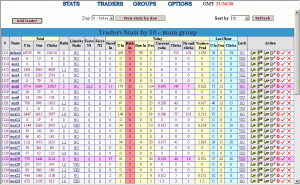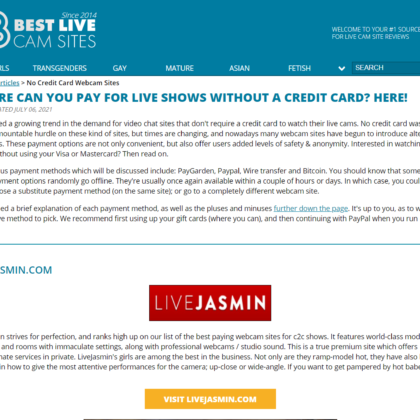Interview with an Internet Marketing Expert. He allowed me to transcribe the answers to my many questions about how to best do link building strategies and what pitfalls to avoid.
“Do you get penalized for having inbound links from the same domain or from different domains with the same IP?“
Penalized? No.
Think about it logically: If you get 200 links from Facebook is that bad? If New York Times, CNN, and Fox News were on the same server and linked to you, would each link count less?
You need to think in reverse, think like a surfer looking for quality content. If you get a quality experience you are fine.
“In the SEO community, we have reports of sites penalized though. This is one of the reasons there is a huge market for SEO hosting spread out everywhere across servers and IPs. Why?“

Ok let me go into it in more details.
1. You can get penalized if the links to your domain look unnatural, they´re toxic, they´re irrelevant etc. You do not get penalized for having 1000s of links from the same server, in fact, if those 1000s of links are relevant, natural and pass good authority they are LOVED as much as any other relevant authority link from anywhere. Think in terms of relevancy and quality, forget the “SEO community tricks” or magic bullets.
2. Assume Google knows there is a connection no matter what. Sure, if you are on the same server Google can see it. But if you spread across multiple servers or C-classes Google more or less always know anyway. How? Often the sites are in the same Google webmaster/analytics accounts, often they are on related nameservers, often they have patterns in writing, themes, linking or some other content related way. In fact a whole range of other factors help Google automatically link them together no matter what. Forget about hiding your connections, big G knows and if you think you can cheat him you are delusional.
In other words. If you paid deerly for links hidden around servers from the same souce, you probably wasted your time and money. Why? Because Google knows already. On top. The fact that those links were hidden shows that the seller thinks more in terms of SEO tricks than quality of source.
(Disclaimer here. I am fully aware that Google does not like paid links at all. Thats no different than a newspaper: would you rather have a link inside a quality article on New York Times, or in an advert on the side? So I am assuming here that things are kept natural looking and not obviously paid, whichever way it is done)
“So you are saying that Google does not penalize for multiple links from the same server, as they do for instance for duplicate content?“
Stop. Stop.
These SEO myths are all misunderstandings.
You get penalized for being a toxic, low quality site that cheats the surfer, give him something other than he expects, infects his computer, link to low quality things etc.
You do not get penalized for quality inbound quality links that are relevant. No matter which server they are on.
And equally you do not actually get penalized for duplicate content, but if you copy an article from a high authority place (shame on you) you are obviously not going to rank for that article as it already has a source that came before you and has higher authority. So, if you fill your site with duplicate content odds are you will rank poorly or not at all. That is not because of being penalized, that is because your site has nothing to rank for. Further on this topic, if you then do the SEO trick and use a spinner to rewrite the article you found, then you might have something unique, but is it actually readable? Is it quality content? Probably not. And as such you still have nothing to rank for and indeed a lower quality site as the surfer can´t actually read your articles.
The same with links. You can follow all the SEO advice about getting links with specific metrics, spreading them over time and different servers, using the exact balanced amount of anchors, tailoring everything.
And fail.
Because you did not focus on the quality, you focused on the form and the measurable things. Us humans like to do that. But it leads to failure here. Forget all your automated tools and rigid rules. Look at the possible inbound link option and simply ponder this:
Is this a quality location relevant to my site? Will the surfer be happy after he clicks my link? If the answer is YES, then grab the link. If the answer is NO then no amount of SEO tricks will rescue it, leave it be.
“So you are saying a penalizing situation is due to something else or could it still be the inbound links?“

It could be both. I mentioned above how a site can be toxic in various ways. Inbound links can get you in hot water too, just not the way “SEO gurus” usually think on it.
If you make 50 identical sites, relevant to your site, put them on the same server and link from all of them to site1. Site1 gets credited with around the strength of 1 link
If you make 50 identical sites, irrelevant to your site, put them on the same server and link from all of them to site1. Site1 gets credited with around the strength of 0 link
That is exactly the same if those 50 sites were on 50 different servers. Google knows, Google sees. And you would get credited with 1 and 0 (in very generalized terms) links.
To get fully credited for 50 links the 50 sources need individual quality and unique relevant content to pass on link juice from. Again if the sites were NYT, Washington Post, Fox etc we would not even discuss it. Of course they have unique, individual quality. The same goes for lesser sites. If out of those 50 sites there are 10 blogs, each uniquely written in high quality and giving valuable information on topics related to site1. Then all 10 will pass that on.
Its quality, quality and quality.
Forget all the little metrics, “how we hacked Google serps” guides, hiding this or that. It isnt just that it is pointless, it might well hurt you because you take shortcuts, do weird things etc. Focus on quality on your own site and in the inbound links you control. Quality. And not “SEO Quality”, heavens no, real quality. Does the surfer get a good experience, does the surfer go where he wants to go, will he enjoy himself and find the information he is after, are the sites and their content relevant to the surfer.
“So what is the ultimate linkbuilding SEO strategy?“
The best SEO strategy is to have none!
The best linkbuilding strategy is to get linked/named/mentioned in quality locations with relevance and authority in your field.
The better an experience you give the surfer, the happier he is that he found you through the link, the more it helps you ranking wise. Thats all.
“Thank you very much“






